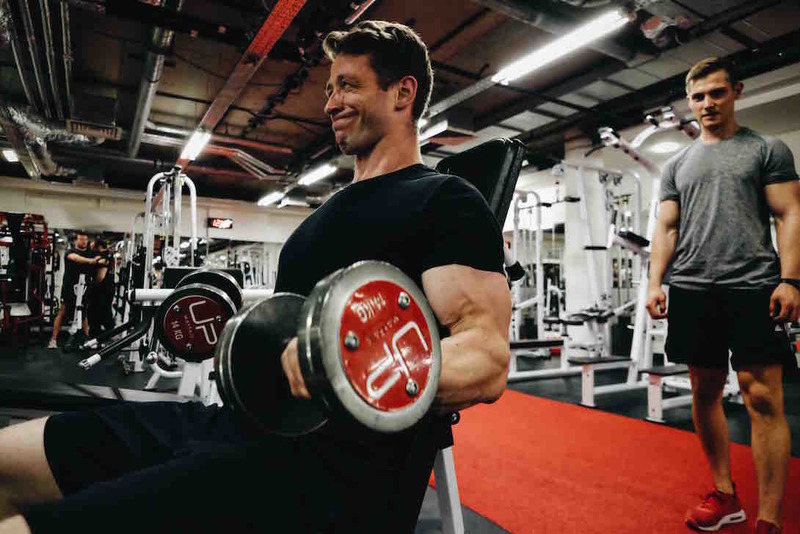These are a sample of some of the most common questions our personal trainers are asked concerning the use of food supplements and their impact upon muscular size and bodybuilding in general
What do I need to take?
“Need” is a very strong word. You only “need” to exercise hard and eat a diet high in protein and essential fats, and consume a slight calorie surplus over your body’s daily calorific requirements.
However, there are many highly effective supplements out there that can aid in the muscle building process both by speeding up the accumulation of muscle mass, and by helping take you beyond that which can be achieved merely by eating “3 square meals” a day. We deal extensively with this subject in a very comprehensive way in other areas of the nutrition section of this website, and if you wish to seek out more bespoke, individualised advice then please contact us and we will be happy to provide any assistance you may need on learning more about supplements for muscular size and strength.
What is creatine, and can it help me get bigger?
Creatine is an amino acid derivative that is incorporated into muscle as creatine phosphate. By regenerating Adenosine Tri Phosphate (ATP is fuel for muscle contractions) it can improve anaerobic endurance, strength, power and recovery between sets of demanding exercise. More power means that you can lift more, for longer. Which equates to improved performance all round. Intelligent use of creatine should result a phenomenon referred to as “cell volumization”. This involves an increase in muscle water content at the cellular level that helps keep nutrients inside the muscle, thus promoting anabolic activity. Also, a well hydrated “full” muscle also provides better leverage, allowing heavier weights to be lifted, and therefore further enhancing long-term performance in the gym or on the athletic track.
Is creatine safe? What about its effects on my kidneys?
At the time of this writing, there are no known negative side effects associated with high dose creatine use. It has been widely available for over a decade with no reported negative consequences. Cycling it’s use however is the smart way to go in order to keep the body responding, as is the way with all supplementation, nutritional and exercise programmes.
Do I need to take a protein powder?
Absolutely not. A better question however, would be “what are the advantages of supplementing with a protein powder?”.
This is a very simple answer depending upon your exercise, nutritional and athletic goals. If you a looking to build muscle then a MINIMUM rule of thumb should be to take in 1 gram of protein per pound of lean bodyweight. For hard training athletes seeking to really ramp up their muscle mass, we see great success when we step up protein consumption as high as 2 grams per pound of lean bodyweight. If a 250lb man was to eat this amount of protein purely from solid food that would be an awful lot of food to digest. Protein powders at their most basic level also provide a great convenience. Imagine shifting 6 chicken breasts to the office – and then swap it with 6 scoops of protein powder. I know which one I prefer to prepare and carry on the tube!
There are a host of other advantages for the judicious use of protein powders, many of which centre around nutrient timing and the rapid absorption of protein for muscle growth and recovery. A good protein powder should be at the top of your list when choosing the best supplements to improve muscular size and strength.
You recommend protein powders – will they make me grow muscle?
No. The only thing that will promote an initial anabolic (growth) response in your body is exercise! The harder and the more painful the exercise the better.
Intelligent use of protein supplements will assist your body to adapt to any exercise stress by utilising the protein at a cellular level for repair, remodelling and ultimately growth.
Which supplements are best for muscle size and strength?
- A protein blend of whey and casein.
- A whey protein that can be quickly absorbed post workout.
- Fish oils.
- Creatine
- Branched Chain Amino Acids
- Herbs such as Panax Ginseng, Avena Sativa and Catuaba that help promote the body’s own natural production of testosterone.




